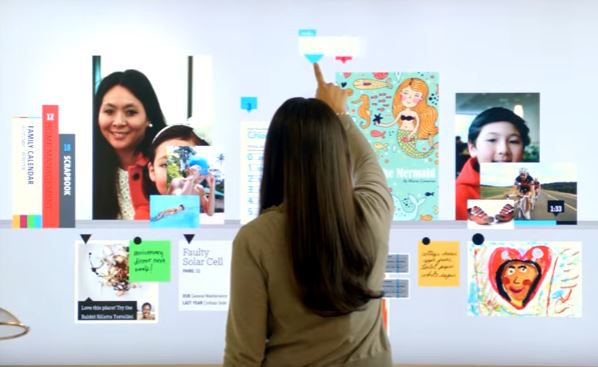How and why Microsoft is stepping up its focus on 'families' with Windows 10

For the past few months, a number of Microsoft watchers have been predicting and hoping (incorrectly) that Microsoft was ready to roll out a competitor to Amazon's Echo and Google Home.

A discovery by Microsoft sleuth The Walking Cat, a k a @h0x0d, of something called "Home Hub" further fueled this rumor. However, as Walking Cat also discovered, Home Hub wasn't hardware; it was some kind of feature or feature set in Windows 10 that will be, at least initially, enabling a shared family account.
On December 2, Windows Central posted more about what their sources are telling them about Home Hub. As the feature name implies, the features/strategy around Home Hub are all about making Windows 10 more of a shared hub for users in a home.
Via Home Hub, according to Windows Central, users will be able to more easily share calendars, apps and services in a more seamlessly connected way.
(I've asked Microsoft if anyone there wants to talk Home Hub. No word back yet, but I'm expecting a no comment.)
Microsoft has been working to realize this home-collaboration/productivity vision for years, by the way. A futuristic "envisioning" video produced by the company in 2013 -- which was meant to provide a glimpse of where company execs thought technology was going in the five- to ten-year time frame -- showed off some of the type of concepts that Microsoft may be aiming to deliver via Home Hub.
I've embedded in this blog post a few stills from that 2013 video, which showed family members sharing photos, apps and calendars from a shared environment that could be on a larger screen device or even a wall in the home. Placing objects on or in front of such a device could trigger proactive suggestions -- as in, provide a list of recipes featuring carrots -- thanks to image recognition.
A recent Microsoft job posting for a software engineer in operating systems engineering, highlights Microsoft's burgeoning "family" focus. There's actually a "Family team" in the Windows and Devices Group (the home of Windows, Xbox, HoloLens and Surface) that's working on Web and back-end services targeted expressly at families/households.
From that November job posting:
"Families are among the most valuable and loyal customers of Microsoft. Families want an environment where children can use their devices and our services safely and responsibly. Families want to share pictures, videos, applications, games, and other purchases easily. Families want to communicate freely and stay in touch. Microsoft is competing fiercely with Google, Amazon, Apple, AT&T and numerous other giants to build a compelling portfolio for families, and the race is just getting started.
"Join the Family team in WDG, and be a critical part of this mission. You will be designing and building web and backend services that will power critical family features for hundreds of millions of users and their families all over the world. Your work will enable families to grow, to keep children safe on the Internet, make purchases in a responsible manner, share digital media and subscriptions, and do much more."
Given Microsoft's focus on natural-language interface, Cortana, Skype, bots, and the Surface pen/Dial peripherals will likely be part of the Home Hub strategy as it evolves.And Azure will no doubt figure in, as well, given Microsoft's ongoing makeover as a cloud-first company.
Microsoft has dabbled a bit in various "family" features already with Windows (renaming Family Safety parental controls to Microsoft Family) and pricing/licensing Office 365 Home around a "household" of users. But so far, those efforts have been rudimentary.
If Windows Central is right, Microsoft may, further out, extend Home Hub so that it's central to the idea of a connected home. Again, Microsoft has done quite a bit of experimenting and research around the "HomeOS" concept, but hasn't brought the technologies around it to market.
I'm still doubtful we'll see anything like a "Cortana Cube" Echo/Home competitor from Microsoft's Surface team, as that team seems largely focused on business-first devices these days. But maybe some Windows OEM will attempt such a device....